GCSE English Curriculum Years 10 and 11
Specification
English Language: https://qualifications.pearson.com/en/qualifications/edexcel-gcses/english-language-2015.html
English Literature: https://qualifications.pearson.com/en/qualifications/edexcel-gcses/english-literature-2015.html
What will I study?
- Modern drama.
- A nineteenth century novel.
- A selection of poems.
- Shakespeare.
What skills/qualities are required?
- Ability to respond to texts critically and to convey response using textual evidence.
- Ability to explore language, structure, form, meaning and alternative interpretations.
- Ability to compare texts.
- Ability to relate texts to social, historical and cultural contexts and literary traditions.
How will I learn?
Through reading and discussion and through conveying understanding of texts by written work. Homework and independent study are also important to foster good habits for A level.
How will I be assessed?
Through examination. These will all be closed book.
Where could it lead?
Literature work helps understanding of a wide range of cultural activities. Specific career areas related to English Literature include: media, journalism, librarianship, teaching, theatre. English Literature is a “gold standard” qualification, highly respected by universities and employers.
Year 10
| Topic | Further details about the topic | |
|---|---|---|
| Autumn Term | ||
| 1 |
English Literature Paper 1: An Inspector Calls by J. B. Priestley
English Language skills |
English Literature Paper 1: Students will analyse aspects of plot, characterisation, events, contexts and key themes in An Inspector Calls. They will also analyse how Priestley uses language, form and structure to create meanings and effects. English Language: Students will practise a range of different English Language skills. |
| 2 |
English Literature Paper 1: Macbeth by Shakespeare
English Language skills |
English Literature Paper 1: Students will analyse aspects of plot, contexts, characterisation, events, contexts and key themes in Macbeth. They will also analyse how Shakespeare uses language, form and structure to create meanings and effects. English Language: Students will practise a range of different English Language skills. |
|
Spring Term |
||
| 1 |
English Literature Paper 1: Macbeth by Shakespeare English Language skills |
English Literature Paper 1: Students will analyse aspects of plot, contexts, characterisation, events, contexts and key themes in Macbeth. They will also analyse how Shakespeare uses language, form and structure to create meanings and effects. English Language: Students will practise a range of different English Language skills. |
| 2 |
English Literature Paper 2: Time and Place Poetry
English Language skills
|
English Literature Paper 2: Students will learn how to analyse and compare unseen poems.
English Language: Students will practise a range of different English Language skills. |
| Summer Term | ||
| 1 |
Revision |
Students will revise key skills in preparation for their exams. |
| 2 |
English Literature Paper 2: Time and Place Poetry
English Literature Paper 2: Jekyll and Hyde by R. L. Stevenson |
English Literature Paper 2: Students will learn how to analyse and compare unseen poems. Students will analyse aspects of plot, contexts, characterisation, events, contexts and key themes in Jekyll and Hyde. They will also analyse how Stevenson uses language, form and structure to create meanings and effects. They will also continue to learn how to analyse and compare poems from the anthology. |
Year 11
| Topic | Further details about the topic | |
|---|---|---|
| Autumn Term | ||
| 1 |
English Literature Paper 2: Time and Place Poetry
English Literature Paper 2: Jekyll and Hyde by R. L. Stevenson English Language skills |
English Literature Paper 2: Students will learn how to analyse and compare unseen poems. Students will analyse aspects of plot, contexts, characterisation, events, contexts and key themes in Jekyll and Hyde. They will also analyse how Stevenson uses language, form and structure to create meanings and effects. They will also continue to learn how to analyse and compare poems from the anthology. English Language: Students will practise a range of different English Language skills, focusing on comparison and synthesis. |
| 2 |
English Literature Paper 2: Time and Place Poetry
English Literature Paper 2: Jekyll and Hyde by R. L. Stevenson English Language skills |
English Literature Paper 2: Students will learn how to analyse and compare unseen poems. Students will analyse aspects of plot, contexts, characterisation, events, contexts and key themes in Jekyll and Hyde. They will also analyse how Stevenson uses language, form and structure to create meanings and effects. They will also continue to learn how to analyse and compare poems from the anthology. English Language: Students will practise a range of different English Language skills, focusing on comparison and synthesis. |
| Spring Term | ||
| 1 | Revision | Revision of subject content for GCSE English Language and Literature. |
| 2 |
Revision |
Revision of subject content for GCSE English Language and Literature. |
| Summer Term | ||
| 1 | Revision | Revision |
Assessments
| Resources | Topic | Type of assessment |
|---|---|---|
| CAT 1 |
English Literature Paper 1: An Inspector Calls by J. B. Priestley
English Language: Creative Writing Baseline Assessment English Language: Concepts and Terminology |
Memory recall questions and a formal essay on An Inspector Calls
Creative Writing Baseline Assessment Memory recall questions on key concepts and terminology |
| CAT 2 |
English Literature Paper 1: Macbeth by Shakespeare
English Language: Evaluating a 19th-Century Text
English Language: Analysing contemporary texts English Language: Concepts and Terminology |
Memory recall questions and an extract-based essay on Macbeth
A series of evaluation questions on a 19th-Century text
A series of analytical questions on contemporary texts Memory recall questions on key concepts and terminology |
| CAT 3 |
English Literature Paper 1: Macbeth by Shakespeare and An Inspector Calls by J. B. Priestley
English Language: Non-Fiction and Creative Writing English Language: Concepts and Terminology |
Memory recall questions and a formal essay on An Inspector Calls and two formal essays on Macbeth
Writing a creative and non-fiction piece Memory recall questions on key concepts and terminology |
| CAT 4 |
English Literature Paper 2: Jekyll and Hyde by Stevenson and Time and Place Poetry
English Language: Analysing and comparing contemporary texts English Language: Concepts and Terminology |
Memory recall questions, one poetry essay and two Jekyll and Hyde essays
A series of analytical and comparative questions on contemporary texts Memory recall questions on concepts and terminology |
| CAT 5 |
English Literature Paper 2: Unseen Poetry
English Literature Paper 2 Mock Exam English Language Paper 2 Mock Exam |
A formal comparative essay on two unseen poems
Jekyll and Hyde, Time and Place Poetry and Unseen Poetry
Contemporary Texts |
| CAT 6 |
English Literature Paper 1 Mock Exam English Language Paper 1 Mock Exam |
Macbeth and An Inspector Calls Non-Fiction |
Main Resources
| Resource | Details |
|---|---|
| Text books |
Dr Jekyll and Mr Hyde R L Stevenson An Inspector Calls J B Priestley Macbeth William Shakespeare Time and Place Edexcel Poetry anthologies Personal Learning Checklists (PLCs) for English Language and English Literature We recommend CGP Guides: https://www.cgpbooks.co.uk/ |
| Massolit |
Watch Massolit lectures to stretch and challenge yourself to access the top grades: www.massolit.io. |
| Century | Complete Century tasks to help you with your revision: https://www.century.tech/ |
| Recommended websites |
Edexcel Language: https://qualifications.pearson.com/en/qualifications/edexcel-gcses/english-language-2021.html
Edexcel: https://qualifications.pearson.com/en/qualifications/edexcel-gcses/english-literature-2015.html |
Enrichment opportunities
| Activity | Day and time or term |
|---|---|







